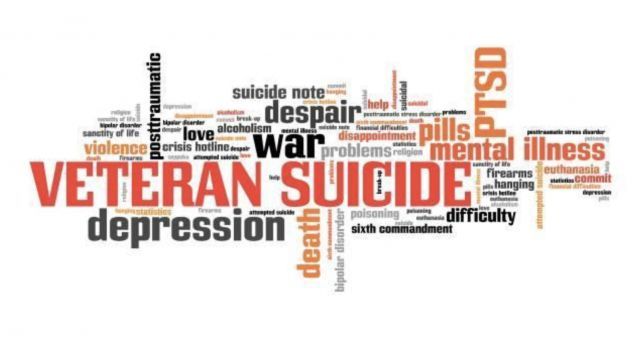
Through the Cherokee County Homeless Veteran Program, Jim Lindenmayer has helped over 3,000 veterans experiencing homelessness or mental health needs.
Legionnaire Jim Lindenmayer is making a positive difference for veteran homelessness and suicide prevention. As the founder and director of Cherokee County Homeless Veteran Program (CCHVP) in Canton, Ga., Lindenmayer has helped over 3,000 veterans with financial assistance and counseling, housing, mental health care needs, transportation, VA benefits claims, food and more.
Whether it’s an eviction notice, job loss, mental health crisis, domestic abuse or whatever situation the veteran finds himself or herself in, “We’re trying to tell veterans (in Cherokee County) to not struggle alone,” said Lindenmayer, a service officer for American Legion Post 45 in Canton. “Reach out to us. We’re going to make sure we help you. We’re going to work with you in a matter of hours, not a matter of days or weeks.”
September is National Suicide Prevention Month and CCHVP is reminding veterans that they are alone through this video. The video shows a veteran struggling with mental health, and another veteran comes to his aid with an outreach hand. CCHVP’s tagline “Don’t Struggle Alone” is shown and its website for veterans to receive support. No words are spoken in the video, just actions.
“We want to show the fact that veterans tend to internalize a lot of stuff,” Lindenmayer said. “They hear things like you’re not good; we can’t help you. That becomes frustrating but there’s always help at the end of the line. When you see the major (in the video) reach out his hand to the veteran, he’s saying without speaking, ‘Let us help you.’ Life can go forward and that’s how it should be.”
Cherokee County has over 20,000 veterans, Lindenmayer said, and it’s through 18 veteran group partnerships that CCHVP is able to identify a veteran in need and provide immediate assistance. That assistance may be a hotel room, food, VA services, etc. The community relationships also resulted in Lindenmayer helping a homeless teenager receive his GED to get into the Marines.
“We have lost one veteran to suicide over the last three years and that’s because we’re doing a better outreach in the community,” Lindenmayer said. “(Our partners) know that if they have a veteran in trouble, they call us, and we become the point of contact for the actual work to get done.
“What we want to do is get people to the right place at the right time. For instance, if you are a combat veteran, doesn't matter if it's Somalia or Vietnam or Afghanistan, we want to get you into the vet center right away. What we found in a lot of the homeless stuff as well as mental health is people were getting connected to the wrong type of person and were being pushed into the wrong type of program. We will take a veteran to the VA in the middle of the night if we have to. And we will pick him up from the VA.
“We call it high tough, high feel. We’re not going to leave you alone.”
For the past five years, CCHVP has focused on veteran suicide prevention and was awarded two mental health grants – the VA SSG Fox and SAMHSA grant with its partner About FACE USA – to assist in their efforts. Thanks to the grants, CCHVP has created a mental health coalition that provides veterans with peer-to-peer counseling, individual mental health counseling and financial counseling.
For example, CCHVP is helping an Afghanistan, who was a mortician during his service, with counseling and VA benefits. “He has seen the worse things that you see in combat, and we’re trying to get him taken care,” Lindenmayer said.
The program also helps women veterans suffering from military sexual trauma, domestic abuse and homelessness. CCHVP is heling a woman veteran who had been homeless for 21 years “because no one was paying attention to her,” Lindenmayer said. “She was on the verge of suicide.
“(As a graduate of West Point and from military service) one of the things we always wanted to make sure we did, no matter what happened, is that we watched out for them (men and women in service) and took care of them and try to make sure that they were part of a family. The military is a family, and we want to make sure that people feel part of that. They're not alone.”
Suicide prevention starts at the community level, Lindenmayer stressed.
“We know even from the homelessness side is the only way you can get things done is to do it locally. You can’t dictate it from Washington. You can’t dictate it from the state. You can’t dictate it from the county. The people at the local level have to get involved, meeting other groups, finding out whether it’s making themselves available and saying, ‘We're here.’ We always want to make sure that people know CCHVP is a grassroots program and it's been here for nine years (operated out of the American Legion Department of Georgia headquarters).
“We’re here today. We’re here tomorrow. We’re actually out there doing stuff every day.”
Other ways CCHVP helps homeless veterans and other veteran families in need is through its vehicle donation program and used cell phone program. The used cell phones have been a great need Lindenmayer said because if the VA can’t get a hold of a veteran who is experiencing homelessness, their claim could be cancelled.
Visit cherokeehomelessvets.com/ for more information.
.
- Dispatch

